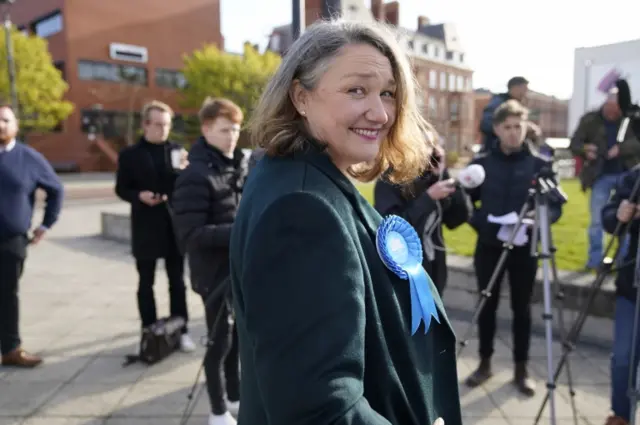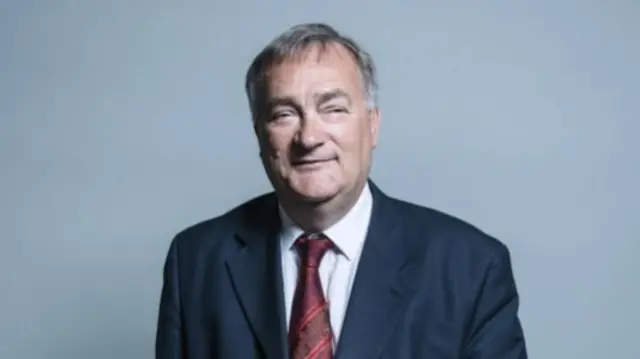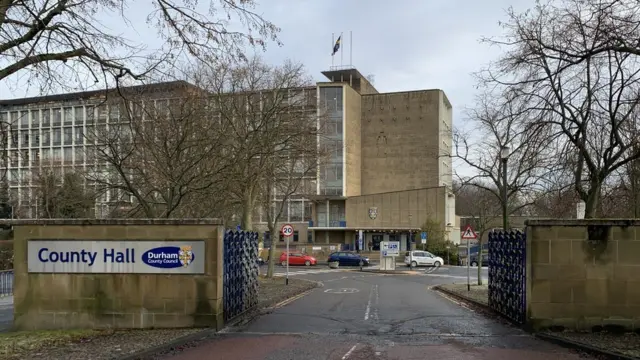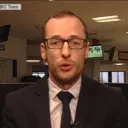North East's 2021 local elections were 'unique'published at 13:56 BST 10 May 2021
Analysis
 Richard Moss
Richard Moss
Political editor, North East & Cumbria
From masked counting of votes to a mayoral candidate getting Covid, 2021’s local elections in the North East were unique.
But in many ways they marked a continuation of political trends that pre-date the pandemic.
Any hopes Labour had of a rapidly bouncing back from losses suffered in the 2019 General Election have been blown away. The party’s 2021 losses were often in the same areas where they struggled then.
The situation in the Teesside area looks particularly serious.
The loss of another MP to the Conservatives in Hartlepool - Jill Mortimer (pictured) is the town's first Tory MP in the current constituency's history - a landslide victory for Ben Houchen in the mayoral race, and another clear Tory win in the Cleveland Police and Crime Commissioner election bear the stamp of a long term shift in loyalties.
The area’s remaining two Labour MPs will be worried they could be next.
 Image source, PA Media
Image source, PA MediaThen there was Labour’s loss of Durham County Council after almost a century of control.
Defeats again often came in communities which have Conservative MPs. Places like Ferryhill, Spennymoor, and Tudhoe now have Tory councillors - something once unthinkable.
Sunderland could be next - another year of losses leaves Labour’s hold looking fragile. The party’s three MPs may be feeling edgy.
Labour’s crumbs of comfort came through retention of police commissioner posts in Northumbria and Durham, and continuing dominance in Tyneside.
The Conservative vote rose there too, but they could not break back into the council chambers of Newcastle and Gateshead.
But the scale of Tory advances elsewhere mean that is of little concern to the party. Instead any pressure on the big winners of 2021 will be about delivery.
Where once they were the insurgents, they are now the establishment. Voters may give them time to deliver on promises of investment, but eventually blaming opponents for problems in the communities they now represent will be less convincing.




